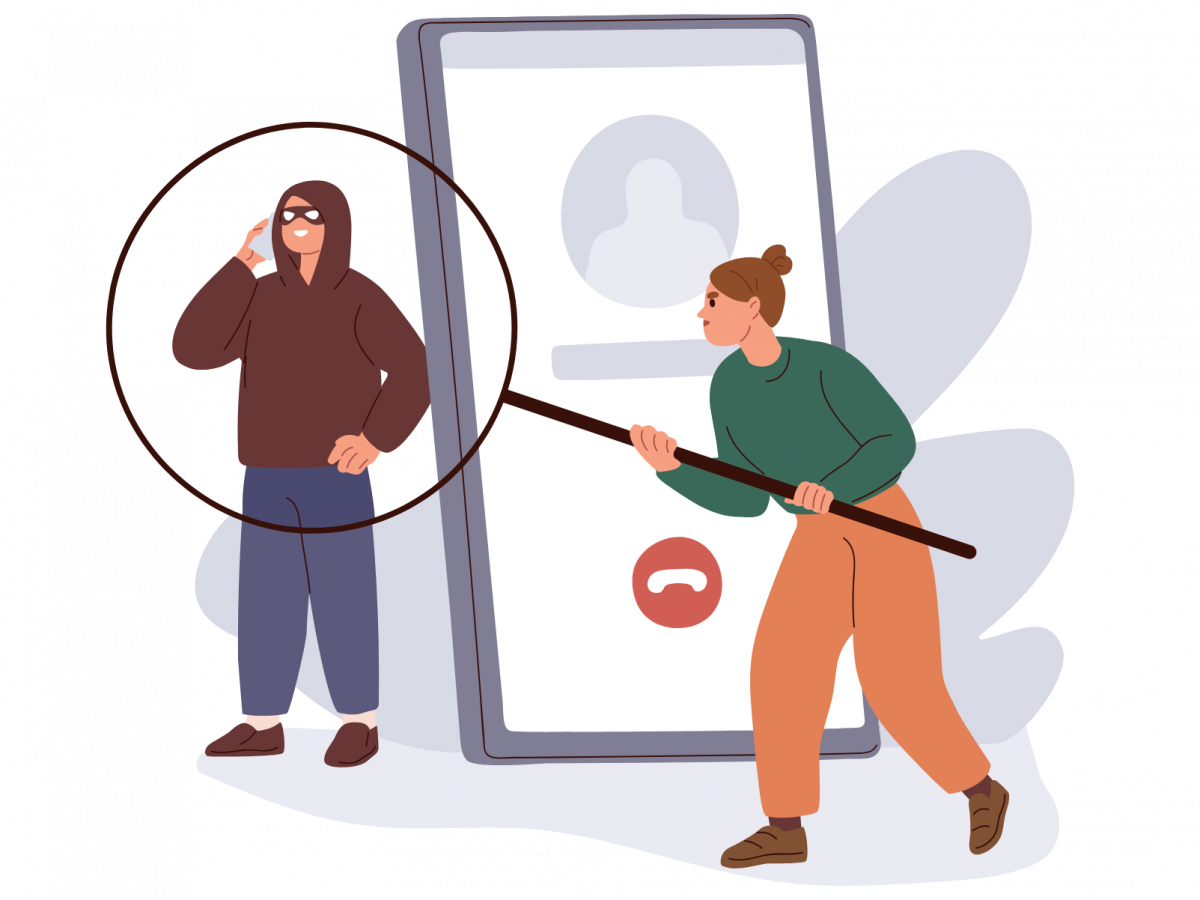How to spot a scam
Reading time: 3 minutes 20 seconds
You receive a call from someone offering you a job with low hours and a high salary, and they don’t need you to go to an interview. Sounds ideal, right?
The thing is you can’t remember applying for the job.
Then, the caller explains that to secure the job you need to give them a sum of money and your personal information.
This is a scam.
The problem in this situation is not you, it’s the scammer who is trying to get your identity and money by manipulating your emotions.
The reality is that if it sounds too good to be true, it usually is.
I was once caught by a scam on Facebook. The ad looked exactly like a fashion store and the website seemed legit. How could I have made such a mistake?
Looking back, that moment of finding a bargain made me feel excited, to the extent that I didn’t stop and question what was happening — why would an exclusive and popular fashion brand advertise clothing at below half price on Facebook? Sure, it happens sometimes, but it’s rare. What I should have done is visit the official website to verify the information.
If you or someone you know has been scammed, you are not alone. Scammers are stealing an estimated $3 billion a year from Australians.
It’s normal for victims of scams to respond by going into denial. Something is embarrassing about being caught out which can make victims fear being judged and ridiculed by their social groups.

Red flags to help identify scams
Talking about scams is a way to de-stigmatise the shame by sharing stories about the warning signs. You might find that by speaking up, you encourage others to do the same.
You feel pressured to act quickly — scammers try to create a sense of urgency and make you act quickly without thinking things through. They use various techniques to catch you off guard and rush you, such as saying that if you don't act quickly, you'll miss out on something important, or threatening that something bad will happen if you don't comply with their demands. It's important to stay calm and not let them pressure you into making hasty decisions.
You are asked to set up new accounts or PayIDs — if someone asks you to create a new bank account or PayID to make or receive payment, you should be wary as this could be a sign of a scam or money laundering. Your bank will never ask you to open new accounts to keep your money safe. Therefore, it is important to pause and verify the identity of the individual before proceeding.
You are asked to pay in an unusual or specific way — if someone is asking you to pay in a way that is unusual or specific, like with preloaded debit cards, iTunes cards, or virtual currency such as Bitcoin, it is likely that this is a scam. Once you have spent this money, there is no way for you to get it back.
It's an amazing opportunity to earn or save money — scammers deceive others by convincing them that they are getting an incredible deal or offer. They pressure you to act quickly so you don’t miss out. Remember, deals that seem too good to be true, usually are.
The message contains links or attachments — don't click links or attachments in emails or texts from unknown senders. Scammers use them to steal your information and money. Always verify the sender's identity and what you're opening. It's safer to access information by browsing to the website or trusted app rather than clicking on a link.

Common scams targeting students
Scammers exploit new technology and our emotions to trick and scare us. Knowing the latest scams will hopefully keep you ahead of the game.
Scams targeting international students
Chinese authority scams
Scammers speak in Mandarin and pretend to be from a Chinese authority such as the police, a government, an immigration official, or a parcel delivery service. Victims are threatened with deportation to China to face criminal charges if they don’t send money to the scammer.
Virtual kidnappings
Victims are pressured into staging their own fake kidnapping by a scammer who uses photos and video as evidence to extort money from the victim’s family.
Visa and immigration status
Scammers pose as a consulate employee and threaten to cancel an Australian visa unless the victim pays money. Only the Department of Home Affairs has the authority to grant, refuse, or cancel a student visa in Australia.
For an extensive list of scams affecting international students and educational resources and support visit the UoA International Student Support Scam Awareness website for more details.
Scams targeting students
Jobs and employment
Scammers pretend to be recruiters who offer high-paying jobs in exchange for personal information and money. Victims are often coerced into accepting a job offer they did not apply for.
Contract Cheating Companies
Scammers offer tutoring and assignment writing services in exchange for the victim’s money, personal details, and university login details to blackmail them. Contract cheating goes against UoA's academic integrity policy; you must never pay someone or a company to do your work for you.
Resources
Report a scam
If something feels wrong, stop and think about making a report. Contact your bank if you suspect a scammer might access your money.
IDCARE supports victims of identity and data breaches by providing advice about how to respond to scams. Visit the IDCARE website to find out more and contact a specialist.
ReportCyber is a service used to report a cybercrime to police. To make a report, fill out the report form on the ReportCyber website.
Protect your mental health
If you or someone you know has been the victim of a scam and needs help, contact Lifeline.
Lifeline provides 24-hour crisis counselling, support groups and suicide prevention services.
Call 13 11 44, text 0477 13 11 14 or chat online.
UoA Counselling Support
Talk to our professional counselling team to address issues that may be affecting your study and life. Counselling sessions are free and confidential.
